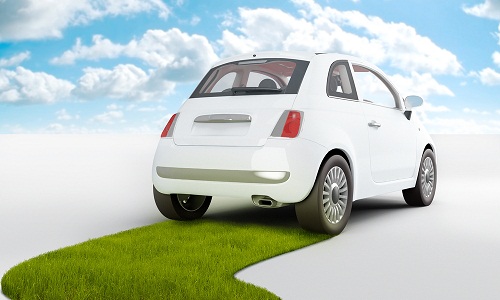
All drivers are feeling the pinch of the massive challenge of rising oil prices. Businesses – especially small businesses – have been hard hit, and inevitably some of those costs get passed on to the consumer. It may have encouraged some of us to use alternative forms of transport, including bikes and buses, but the whole economy depends on gas-powered vehicles. The solution may be waiting in the wings: electric vehicles and eco cars.
The problem of rising oil prices isn’t going to go away, as world supplies of fossil fuels become further depleted. The good news is that we’ve already taken some steps to address the problem. It’s not long ago that hybrid eco cars, combining ecofriendly technology with traditional power sources, were a rarity. Now they’re everywhere.
Cars aren’t going to be truly green until a radical new solution is found. Meanwhile, electric eco cars help take some of the pain out of filling up at the pump. The bonus of the electric vehicle is that the price of charging the battery is less vulnerable to the kind of rising oil prices that we’ve seen in recent months. It’s still early days but alternative, renewable sources of creating and distributing electricity have started to make an impact on prices.
What’s stopping the world from fully embracing the electric car? Although some all-electric models like the Nissan Leaf have been received enthusiastically there are a bunch of practical considerations, quite apart from the fact that most people are conservative when it comes to big purchases like vehicles, preferring to stick with what they know and what is –or seems – to be the cheapest.
Electric cars continue to be expensive compared to internal combustion engine vehicles. This is down to the high cost of the lithium-ion batteries that they run on, though prices have been coming down. Rising oil prices are a problem, but they may have the effect of making running eco cars more attractive to consumers. Studies show that maintenance of electric cars is significantly less expensive, and if the cost of gas continues to soar then the gap is likely to keep on narrowing.
Other practical considerations also hamper switching to eco cars. A big obstacle is an under-developed recharging infrastructure (other than home battery recharging). This means that drivers report ‘range anxiety’: the fear of the battery going flat half way to their destination, with few places to plug in en route and a lengthy delay while it recharges. That problem has been addressed, with a battery switching scheme that has proved effective in Denmark. Drivers simply swop the dead battery for a fully charged one. It’s a five minute operation.
There may be issues and hiccups in the market expansion of electric vehicles, and their ecofriendliness depends on electric power from more affordable and greener sources being put into place. It may be slow but electric eco cars are a real alternative to traditional vehicles, and their increasing popularity is a trend that is set to gather pace.

